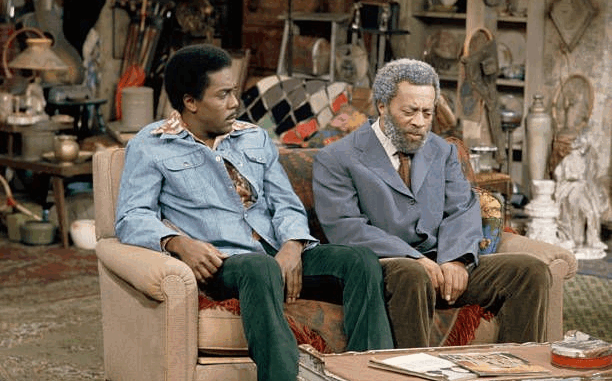
Behind every withering glare and sharp-tongued insult, LaWanda Page was hiding something deeply personal—and it changed everything about her performance.
Aunt Esther was one of the most iconic characters on Sanford and Son, delivering fire-and-brimstone monologues that left Fred Sanford sputtering. But the woman who portrayed her, LaWanda Page, was carrying a heavy secret few ever knew: she was mourning the sudden death of her younger sister—during the show’s early success.
Page had grown up in a tight-knit family, and her sister was her closest companion. When tragedy struck just before Page’s breakout season on the show, producers offered to delay her appearances. She refused. Instead, she brought her pain to the screen—channeling it into Esther’s rage, her passion, and her unrelenting pursuit of “righteousness.”
Fellow cast members, including Redd Foxx, knew something had changed. “Her performance became sharper, angrier,” Foxx once said. “She wasn’t acting half the time. That fire? That was real.”

Esther’s infamous scenes—slapping Fred’s hat off, chasing him with her Bible, or launching into sermons mid-insult—took on a new intensity. The audience thought it was comedy gold. In truth, it was grief in disguise.
What’s more shocking is that Page never spoke about it publicly. No interviews, no press mentions, nothing. She kept the sorrow locked behind Aunt Esther’s righteous fury. It wasn’t until years after her death that a close friend revealed the truth in a biography.
This new revelation adds an emotional layer to the show’s rewatch value. Viewers can now see the pain behind the punchlines, the real tears behind Esther’s wild-eyed rants.
LaWanda Page turned grief into art. And without ever telling a soul, she transformed a character into a cultural force—forever reminding us that comedy often hides the deepest truths.